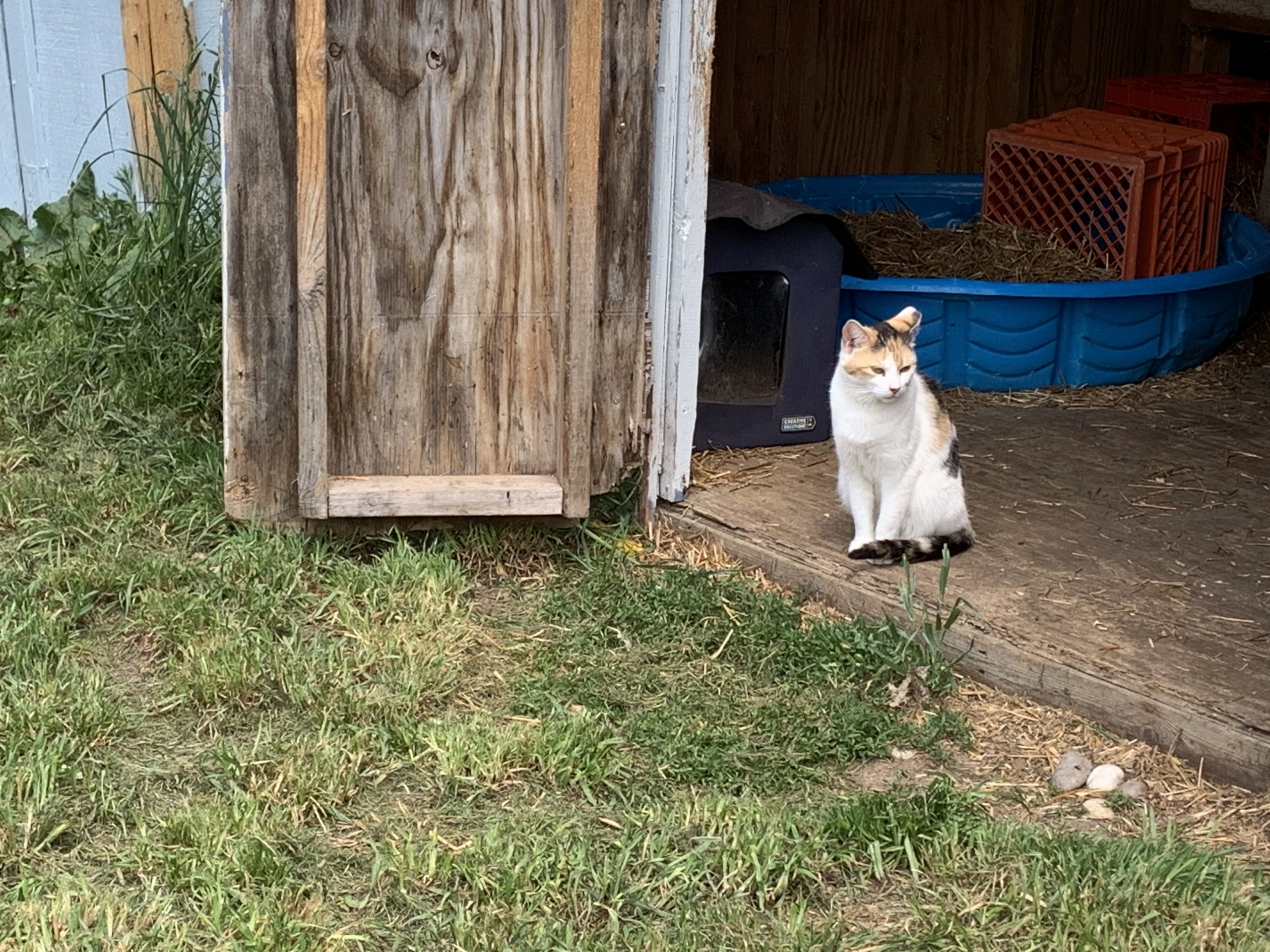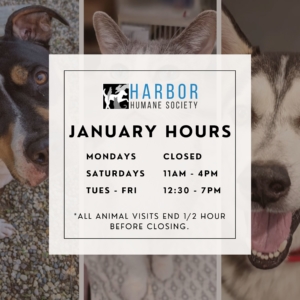Return to Field Initiative: Community Cats in Ottawa County
Harbor Humane Society is a 501C3 nonprofit organization, and we hold a contract with Ottawa County to be responsible for all stray animals and law enforcement cases within the county. What does that mean?
It means we receive a monetary amount for each stray animal we take in! On average, our county contract makes up 12% of our overall revenue each year. We’re reliant on community donations and fees for service to supplement the rest of our operating budget.
In 2020, we renewed our 5-year contract with Ottawa County, and we are initiating a NEW community program in 2021 that will help combat pet overpopulation and citizen complaints! Return To Field (R.T.F.) is a concept that’s been heavily studied and proven successful in communities across the country. In short, return to field means that when a stray/feral cat is found in the community, the finder can bring that cat to the shelter, the shelter will spay or neuter the cat (after determining it is in fact not an owned cat), and that animal will be returned to the place it was picked up (the “field”) after surgery. During surgery, the cat is also ear tipped, microchipped, vaccinated, and given dewormer.
WHY?
R.T.F. initiatives reduce the community cat population because sterilized cats (meaning spayed or neutered) will defend their territory from new cats roaming in and reproducing, halting the cycle of unwanted pet overpopulation. This policy of managing community cats through sterilization is endorsed by The Humane Society of the United States, the ASPCA, Best Friends Animal Society and many other leading national animal welfare organizations. Read on to learn about the progression of this idea!
HISTORY
Harbor Humane Society takes in hundreds of community (free roaming, outdoor) cats brought to us by concerned citizens annually. The cats may be feral (wild), lost or abandoned strays, or pets belonging to unidentified owners. Until 2015, our policy was to euthanize these cats if they were not reclaimed or were unadoptable due to temperament or lack of space. This approach historically has failed to reduce the number of cats entering our shelter and there is no evidence it has reduced the population of outdoor cats in our community. There are several reasons why removing cats from the environment and euthanizing them fails to impact their numbers on anything but a temporary basis:
- Not enough cats in an area are removed quickly enough to prevent their continued reproduction and population growth.
- The food and shelter that were available to removed cats remain in place, and before long, new cats arrive to take advantage and fill the void.
- Many community members feed and care for outdoor cats and oppose their removal.
PROVEN R.T.F. SUCCESS
Where communities across the United States have seen success, as reflected by lower cat intake and fewer citizen complaints, there has been an active sterilization of community cats. As stated earlier, once no longer able to reproduce, the cats continue to fill a niche and prevent new, unaltered cats from taking over. Sterilized cats also roam less, make much less noise, and do not create a foul odor when marking territory. They do continue to provide rodent control. If enough of the cats in a neighborhood are sterilized, their population numbers will drop over time.
Since 2015, Harbor Humane Society has not euthanized healthy community cats due to lack of space or unsuitability for adoption. Cats that are deemed unadoptable as a pet were released to our onsite feral colony, or placed as a working cat for pest control to adopters had needs. With this new initiative, we will implement a sterilization program so we can return cats to their original location. We spay or neuter the cat, tip the left ear, insert a microchip, vaccinate, administer deworming medication and return the cat to their original location. We are able to safely assume from the cat’s healthy body condition that they are being fed and cared for by a community member. R.T.F. is going to help manage and decrease the overall population of community cats in Ottawa County!
What if I don’t want cats on my property?
There are many ways to keep unwanted cats or other animals out of your garden or yard, including motion-activated sprinklers and cat-proof fencing. Using deterrents is more effective for keeping your property cat-free than repeatedly trapping and removing cats. For more information, please visit the Neighborhood Cats website at http://www.neighborhoodcats.org/how-to-tnr/colony-care/keeping-cats-out-ofgardens-and-yards-2
Will returning the cats lead to increased cruelty and abandonment?
The experience of communities with these sterilization programs has been that returning healthy, fixed cats to their territories does not result in more acts of cruelty or abandonment. Citizens are generally law-abiding and harming a cat or releasing a cat at a new location where it cannot be assumed there is adequate food or sustenance are crimes under law. Also, as discussed, when a cat is sterilized, much of the behavior which people find annoying – noise, odor, fighting – is dramatically reduced.
Will returning cats harm wildlife?
We do not return cats to locations specifically managed for the preservation or protection of wildlife. Overall, reducing the outdoor cat population through sterilization will protect wildlife more than endlessly repeating the cycle of removing and euthanizing cats.
What can I do to help?
The more cats in an area who are fixed, the better the sterilization program works! If you are feeding outdoor cats who are unaltered, or if you are aware of them, please let us know. We can advise you how to safely capture them and bring them to our spay/neuter clinic.
Together, we can solve Ottawa County’s cat overpopulation crisis while respecting cats’ lives and treating them as humanely as possible.
If you have questions regarding this program, please reach out to sheltermanager@harborhumane.org!






